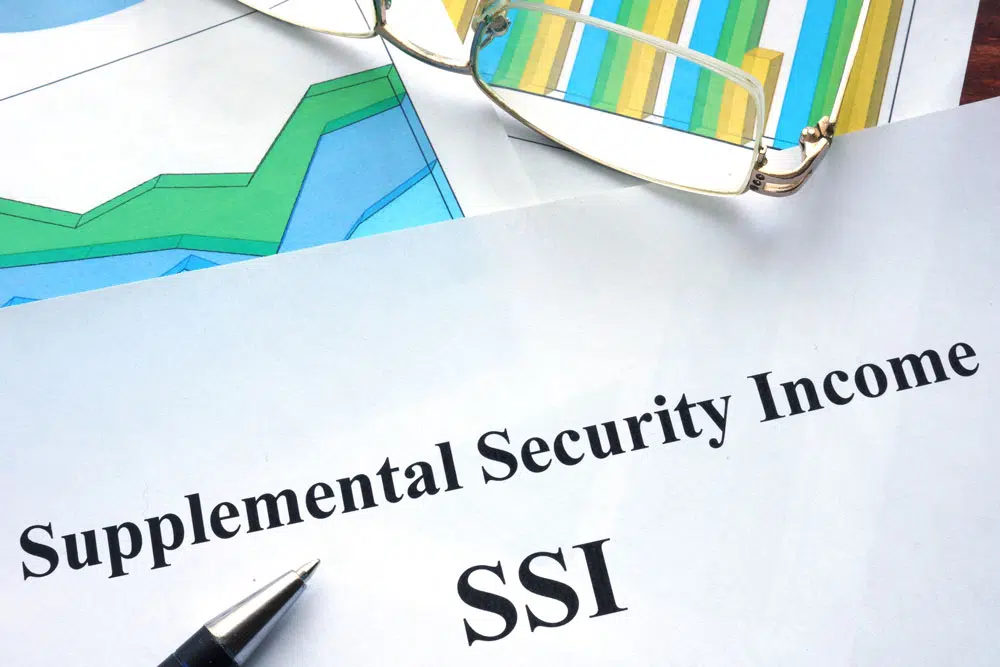Supplemental Security Income (SSI) is a safety net provided by federal tax dollars to prevent low-income elderly or disabled individuals, including blind or disabled children, from living on canned cat food. That may be a bit of hyperbole, but the poor (literally) folks getting SSI must have almost no other assets. So how does SSI figure in child support calculations?
SSI & SSDI Income
SSI is one of two programs we as a society have designed to provide for our most vulnerable citizens:
- SSI — Supplemental Security Income is available to the elderly and disabled folks already mentioned, with the stringent requirement they have almost no assets
- SSDI — Supplemental Security Disability Income provides monthly cash benefits to disabled individuals and families who have a significant history of working roughly five of the previous ten years, with no limit on the assets an individual can have to retain eligibility for SSDI
Despite a myth about “welfare queens” and the like, nobody receiving SSI or SSDI is getting rich. The federally mandated monthly maximum payments for SSI are:
- $783 for an eligible individual
- $1,175 for an eligible individual with an eligible spouse
A monthly income of $783 is only $9,396 annually.
Child Support and SSI
Let’s say your child receives income from SSI. Does it count toward the child support the child is to receive from her or his noncustodial parent?
The Social Security Administration classifies child support as unearned income to the child. It reduces SSI payments by two-thirds of the amount of child support the child receives.
Let’s try an example. Tiny Tim would receive $783 a month in SSI but also receives Virginia child support payments, under Code of Virginia § 20-108.2. Tiny Tim’s noncustodial parent has a combined monthly gross income of $1,000 (for simplicity). That means the noncustodial parent pays Tiny Tim’s custodial parent $187 a month.
The Social Security Administration excludes a third, $62.34, and counts the other two-thirds, $124.66, as part of the child’s income. It reduces Tiny Tim’s $783 by $124.66, sending only $658.34 a month.
A child receiving SSI is expected to have virtually no other assets. The logic here is that the American taxpayer is not expected to bear the burden of giving the child a level of luxury not available to the average American. One could argue that an annual income of $9,396 ensures that.
Can Child Support Cause an SSI Loss?
Remember that a child receiving SSI must have almost no other income. That means a monthly child support payment in excess of the SSI monthly $783 will trigger the end of SSI benefits.
The lowest child support payment in Virginia’s guidelines to exceed $783 a month is on gross monthly income of $5,450, or $65,400 annually.
A noncustodial parent grossing an amount $7,177 below Virginia’s 2018 median household income of $72,577 will cause the child to lose SSI.
The Virginia child receiving $787 a month from child support from a noncustodial Virginia parent will have an annual gross income of $9,444.
Just to be clear: no Virginia child is getting rich off of SSI, child support, or SSDI.
The Big Picture
We leave to others the moral arguments over the fairness or inequity of child support and SSI. The big picture is that a Virginia couple with children, whether married or not, must find ways to provide for those children.
No parent wants a child to exist in poverty or subsist on canned cat food. Yet when a reasonable schedule of child support payments is created, some Virginia noncustodial parents do balk at payments because the child is eligible for SSI.
A close examination of the actual monetary amounts a child receives tells a lot about the kind of life that child will endure.
Your Child Is Your Responsibility
As a Virginia man, you bear a responsibility to care for the children you sire, whether they are under your roof or not. By all means examine the numbers in your property settlement agreement scrupulously, but do not begrudge your own children the small amounts of money needed to keep them happy, healthy, and alive.
To learn more about the ins and outs of government programs for children, child support, or property settlement, contact us at The Firm For Men. You may also call our office at (757) 383-9184. We look out for Virginia’s men. And kids, too.

